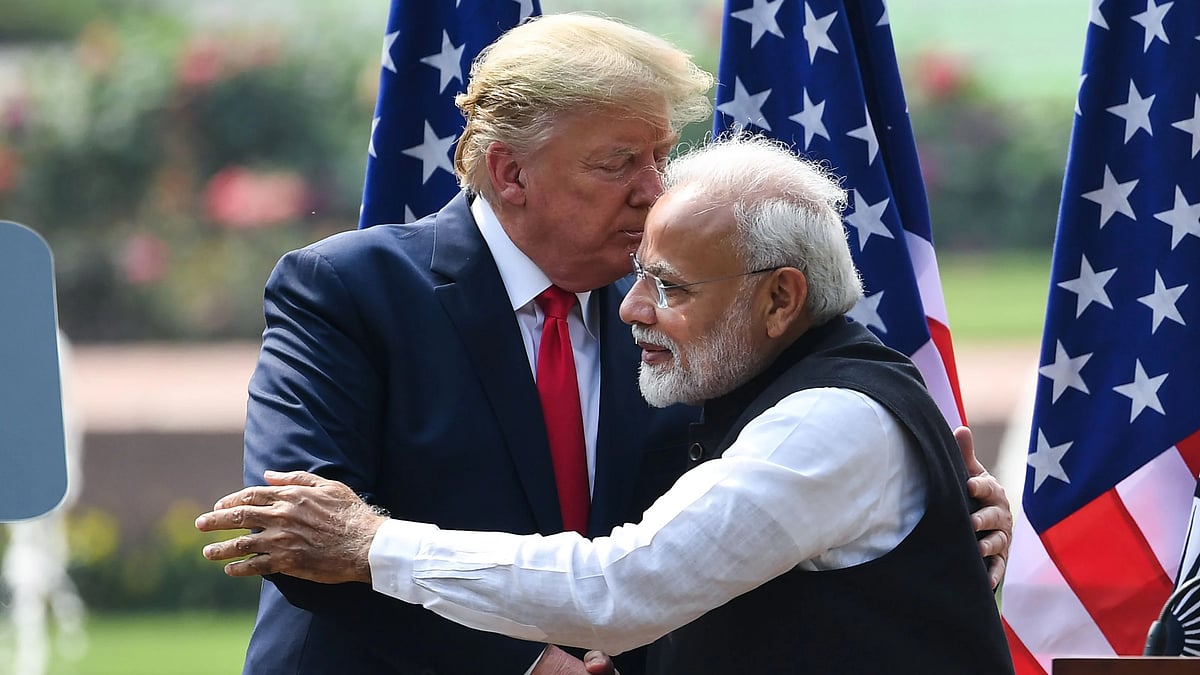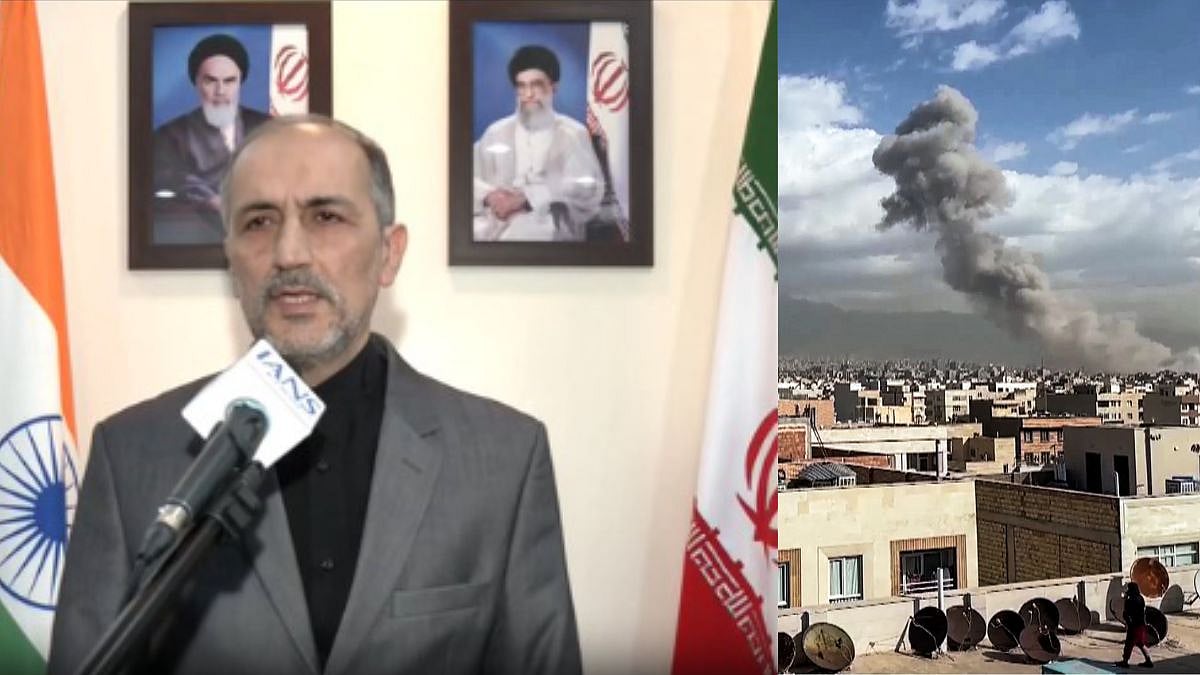August 15, this year, has special significance for multiple reasons. It is, firstly, the Indian Independence Day. With escalating controversy over the Election Commission’s Bihar vote revision, Prime Minister Narendra Modi would get an opportunity to address the nation and shift the focus back to his agenda.
But also, that day an important summit takes place in Alaska, between the leaders of the US and Russia. Pakistan celebrates its Independence Day a day earlier, when, significantly, the Pakistan Tehreek-e-Insaaf party (PTI) is launching protests over the continued detention of their leader and former prime minister, Imran Khan.
First, the Alaska summit. Hardly anybody is predicting a successful outcome. US President Donald Trump himself has lowered expectations, saying he is meeting Russian President Vladimir Putin to assess his mind. US analysts worry that past experiences show Putin having outplayed his American counterpart during their encounters.
During President Trump’s first term, the two leaders met six times, compared to a solitary meeting between his successor, president Joe Biden, and the Russian leader.
Members of the European Union (EU) have been voicing concern that any deal, in the absence of Ukrainian President Volodymyr Zelenskyy, will be wrong and unimplementable. A video conference between the EU, President Zelensky and the US has been arranged immediately prior to the Alaska Summit to make that point.
The Summit holds importance for India too, as a positive outcome can remove at least one of the hurdles in the India-US relations. President Putin, in case he accepts a ceasefire in Ukraine as a precursor to a dialogue to settle the dispute, would demand that the US first lift sanctions on it.
If that happens, then the supplementary tariffs of 25% imposed by the US on India for buying Russian oil lose justification. That could improve the environment before the next phase of India-US trade talks scheduled in the second half of August. The possibility, however, of such a positive outcome in Alaska appears remote.
It is obvious that the worsening of India-US ties needs to be reversed quickly. An additional irritant has been Trump’s continuing claims, despite Indian denials, about having mediated the ceasefire to end the 4-day Indo-Pak military standoff.
The revived bonhomie between Pakistan and the US is turning that into mounting distrust between India and America. Symbolising that was first the lunch hosted at the White House by President Trump for the Pakistani Chief of the Army Staff, Asim Munir, and within weeks of that, Field Marshal Munir revisited the US, apparently to attend the ceremony marking the retirement of the US Central Command’s head.
During that visit he launched another tirade against India, threatening a nuclear Armageddon to thwart India from blocking the river waters flowing to Pakistan under the Indus Waters Treaty, presently in abeyance. He unabashedly claimed that “if we think we are going down, we’ll take half the world down with us.”
The spokesman of the Indian Ministry of External Affairs correctly criticised the threat, especially when made from US soil. Ironically, it came on the 80th anniversary of the American nuclear bombing of Japan at the end of the Second World War.
Generally, a consensus has existed since then that nations possessing nuclear weapons do not randomly threaten their use. Russia has obliquely done that during the Ukraine war, but ostensibly to stymie increased NATO support for Ukraine. Despite India’s public criticism of these remarks, not a word of reproach has emanated from the US.
On the contrary, the US has gone ahead to declare the Baluchistan Liberation Army (BLA), besides ISIS of Khorasan and Tehreek-e-Taleban Pakistan (TTP), as terrorist organisations. Pakistan has been alleging Indian complicity in supporting the BLA and TTP.
On top of that, Pakistan and the US held a counterterrorism dialogue in Pakistan on August 12, reaffirming their “long-standing partnership”. They reiterated their desire to cooperate closely in multilateral fora, including the UN. This wooing of Pakistan by the US merely complicates the trade negotiations, as it stiffens the Indian resolve to defend its national interests, involving trade or geopolitics.
According to reports, Russia has, meanwhile, successfully launched a military thrust into Ukraine near Pokrovsk, intending to gain a negotiating edge before the Alaska Summit. The allegations of Russian interference in the 2016 presidential election, which Trump lost, have been recently revived.
Trump has, in the past, rejected speculation, after speaking to Putin, about his complicity. Such issues may also figure during parleys in Alaska, linked to the already polarised US politics.
These irritants aside, India confronts two core issues. One, to finalise even an interim trade deal to bring certainty to US tariffs on Indian exports. The second is to quickly get the US to withdraw the punitive tariffs imposed due to the Indian import of discounted Russian oil. While doing that, India has to live with restored US-Pakistan bonhomie.
One view is that Field Marshal Munir may be targeting India to bolster his public image in Pakistan. He may be preparing to grab direct power but at least wants to ensure that his nemesis, former premier Imran Khan, remains detained.
Khan, reportedly, may have employed his family, based abroad, to lobby influential Jewish persons to seek Trump’s intervention for his release. In the Trumpian world, such individuals are more effective than direct diplomatic outreach in influencing decision-making.

Thus, this year’s Independence Day is about defending the values that India’s founding fathers cherished. These imply liberal democracy at home and fearless pursuit of national interests abroad.
KC Singh is former secretary, Ministry of External Affairs.




